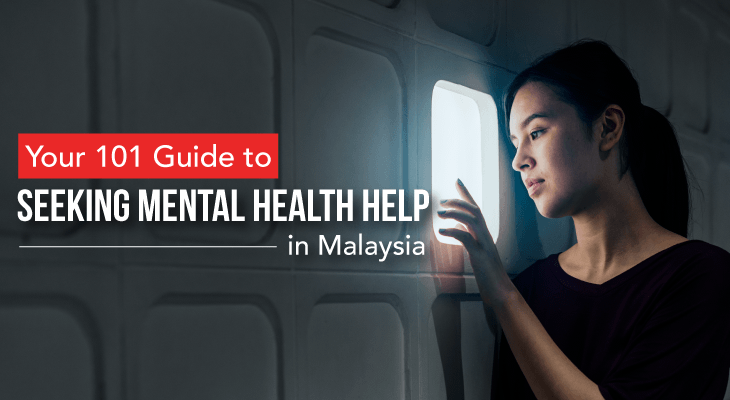How to Avoid Stress in College? Here Are 7 Stress Management Tips for Students!
Many students are vulnerable to stress in college as it can be quite different from high school. If you’ve ever felt that tightening of your chest coupled with fear and anxiety, know that you are not alone. Here are 7 stress management tips for you to cope with stress as a student.
Updated 02 Jun 2016

Your finals are just around the corner and you're feeling that you've gone way past your limit. You have 5 exam papers to study for, 2 assignments to hand in, 1 presentation to prepare and 17 other equally important things that you need to do.
If you're starting to feel stressed, anxious and overwhelmed, know that you are not alone.
Many students are vulnerable to stress in college as it can be quite different from high school, but trust me when I say that your life is not over if you get a C- in Chemistry.
The trick is knowing how to handle stress and channel it the right way so that you can continue to function without sinking into depression.
Here are 7 stress management tips for you to cope with stress as a student.
1) Prioritise your physical health
Most people don't realise this, but your physical health can severely impact your mental health.
Sleep deprivation, an unhealthy diet and lack of exercise can affect your mood and increase stress levels. As such, it is important that you:
- Get enough sleep: Always try to get at least 6 hours of sleep. Studies have shown that lack of sleep can contribute to symptoms of depression.
- Eat proper food: Keep a good, healthy diet by eating balanced meals. Avoid energy drinks that can give you a sugar crash, causing heart palpitations, headaches and tremors.
- Get physical: Go for a run, play a game of futsal or join a yoga class. Physical activity helps to release endorphins, which acts as a natural painkiller!
2) Stop and take a deep breath
Sometimes, when things gets too overwhelming and you start to feel your chest tighten, it's good to just stop for a moment and take five deep breaths. Breathing deeply sends a message to your brain to calm down and relax, helping you to manage your stress levels.
If you're feeling experimental, you can also try meditation. Studies show that after eight weeks of meditation, the amygdala, which is the part of your brain that's responsible for anxiety, fear and stress, actually shrunk in size, resulting in a reduction of stress levels!

3) Don't try and conquer everything in one day
Much as you'd like to be, you're no Superman.
Many students underestimate the amount of time to complete an assignment or finish learning a study chapter, thinking that it can all be done in just one sitting. Once they realise it's more than what they can handle, they start to panic and stress!
This is called the 'planning fallacy' and doesn't happen to just students, but big corporations too!
Don't be one of them. Instead, break everything down into chunks, plan out what you can realistically achieve and schedule your tasks accordingly. Chances are, you'll realise that you've allocated way too little time at the start!
Once you've written everything down in a detailed plan, you'll feel much better about yourself and can start to take action on some of your tasks instead of panicking and stressing!
Apply for university with EduAdvisor
Secure scholarships and more when you apply to any of our 100+ partner universities.
Start now4) Take a moment to be grateful
At times of high stress and anxiety, it's important to take a step back and count your blessings.
In fact, it has been scientifically-proven that showing gratitude can improve your psychological health by reducing various toxic emotions, such as frustration, resentment and envy. It can also help to improve self-esteem and increase mental strength.
So, why not keep a gratitude journal by writing down three things that you are grateful for each day? If a friend helped you out with your work, or if you managed to get home right in the nick of time before it rained, write it down!
Noticing new things to be grateful for each day will help you experience more positive emotions as well as reduce stress!
5) Pay attention to what your body is telling you
Your body is surprisingly good at giving you clues and hints as to what's wrong with you.
Feel jittery and anxious all the time? You may be drinking too much caffeine. Try switching to healthier options to keep you awake, like green tea or a glass of ice cold water.
Feel tired and can't focus on studying? You're probably not getting enough sleep. Make sure you get a good night's rest, and try taking short breaks in between studying instead of powering through. Sometimes, an hour of intense, focused studying can be a lot more effective than four hours of unproductive effort.
Don't ignore what your body is telling you, as being aware of yourself can help you make the right decisions instead of going in the wrong direction.
6) Put some food in you
Yes, you can eat to de-stress! Certain foods and drinks have been scientifically proven to relax and calm you down in times of stress.
Try sipping on a soothing cup of hot green tea, which contains L-Theanine that helps to relieve anger and stress. Or how about a piece of dark chocolate, which can help to regulate the levels of your stress hormone and stabilise metabolism? You could also try chewing on some gum, which can also help to reduce anxiety!
Although eating can be an effective way of dealing with stress, try not to stuff yourself with bags of potato chips or candy bars, as you will definitely regret the effects of it later on!

7) Spend time with your loved ones
Don't lock yourself up and isolate from the world. That can make things worse.
Instead, spend time with family and friends to help ease the stress and burden, even if you don't feel like it. Go for lunch with them, or plan a weekend getaway. This gives you something to look forward to and gets your mind off the stress for a while.
It's always important to have a strong circle of family and friends, especially in times of emotional crisis. Your family is always there to support you no matter what, and your friends can certainly give you a new perspective on things and help you laugh things off!
Above all, avoid those who make you feel terrible or are the cause of your stress. Life's too short for you to be wasting time on toxic people!






